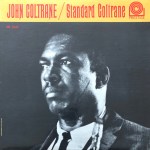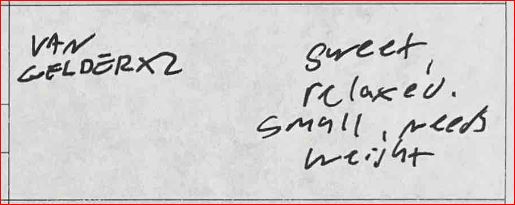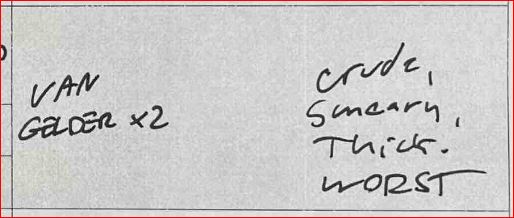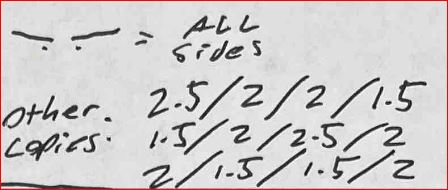 More of the Music of John Coltrane
More of the Music of John Coltrane
Reviews and Commentaries for the Music of John Coltrane
A rare and expensive early mono pressing that we put into our most recent shootout was dreadful sounding.
Our main listening guy owns the record and made the note you see below, saying that his personal copy is every bit as bad.
The sound of the original was painfully midrangy and crude. It was not the worst of all the pressings we played, but it was nevertheless pretty bad, sounding nothing like our shootout winners.

We had a pressing on an early Prestige label in stereo, also mastered by Rudy Van Gelder, that was reasonably good sounding, earning grades of 1.5+ to 2+. It was sweet and relaxed, but relatively small and lacked the weight of the best.

We had another early label Prestige mono pressing that was not good at all. It was the worst of the batch: crude, smeary and thick. (I can’t say that most modern remastered records are crude, although some of them are, but a great many we’ve played are smeary, and almost all of them are thick — that is, lacking in transparency — to some degree. That last quality — a lack of transparency — may be the most irritating of all, a subject we discuss here.)

For this music, we’ve found the best sound on the better Two-Fer pressings and the right OJC.
That Two-Fer budget reissue pressing, remastered by David Turner in 1972, can do very well in a shootout, but it can also fall far short of the mark on some sides, as you can see from the grades for these three other copies.

If you have the Two-Fer, how does yours sound compared to the four we auditioned (a shootout we were doing for the third or fourth time I might add), and how could you possibly know such a thing without a great many more copies at hand to clean and play?
Poor Rudy
Rudy Van Gelder comes in for a lot of criticism from the audiophile community, especially from audiophiles who prefer the remastered Heavy Vinyl pressings made from his recordings. Much of the criticism comes from some of the very same engineers responsible for mastering those records. Those who produce the reissues are notable critics as well.
Perhaps we will quote some of the opinions of these mastering experts and label owners at a later date. We take issue with a great deal of what they’ve said, especially Joe Harley’s defense of his rather lackluster Tone Poets records. (Reviews coming as well.) We will be writing more about this subject soon I expect.
Having recently played some of Rudy’s absolutely amazing recordings — here’s one that blew our minds — it seems that there must be folks out there who know how to make records from his tapes that put to shame anything being made today.
How they do it is a mystery to me, but when you have the physical record in hand capable of making the case by dint of its irrefutebly superior sound, how can there be an argument at all?
Proof Positive
I can prove that Rudy Van Gelder made great recordings, and I can prove that he mastered amazing sounding pressings, because I have the proof in the form of Hot Stamper pressings of his albums.
If you want to buy some, and prove to yourself how mistaken some members of the audiophile community are about RVG’s recordings, we can guarantee that you won’t lose money either way.
If you don’t see things the way we do, you get your money back. If you do see things the way we do, you will have learned a great deal about the value of these so-called expert’s opinions regarding vinyl pressings and their sound quality.
They may talk a good game, but where are the records that back up their claims of superior sound quality? We have yet to play one. If you know of any, please contact me at tom@better-records.com.
Further Reading
- Record collecting for audiophiles from A to Z
- Building a store of knowledge, one record at a time
- More of our reviews for records with amazingly good sound
